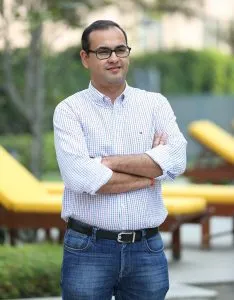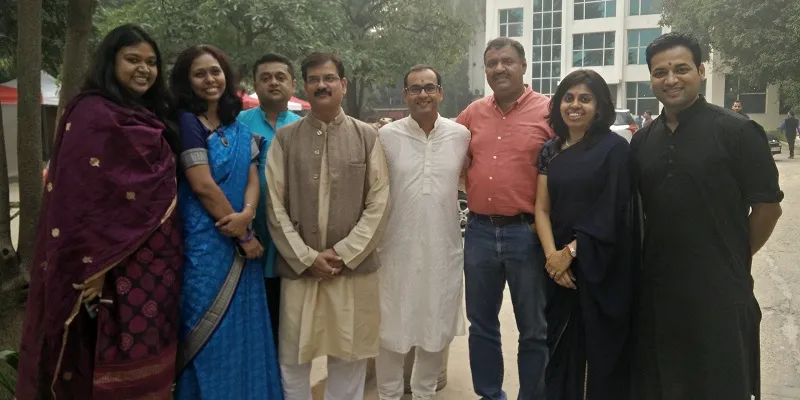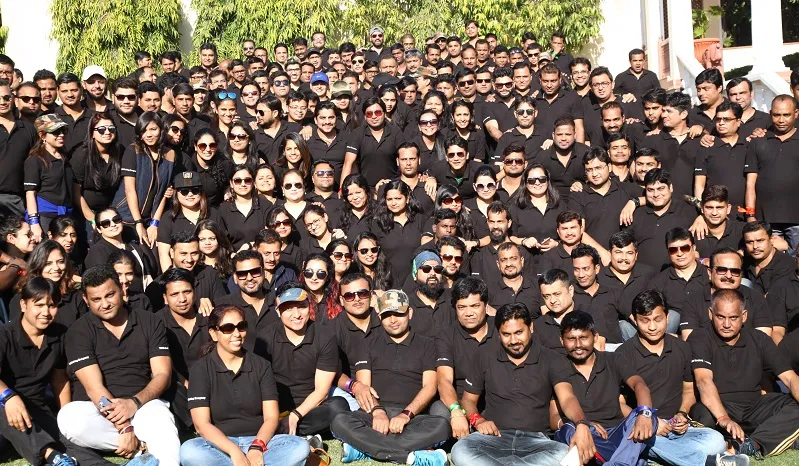W and Matrix Partners: The secret sauce to building a great business is a great partnership
In 2002, when TCNS Clothing opened their first ready-to-wear store under the W brand in New Delhi’s Lajpat Nagar, it was to fill a gap in the contemporary Indian women’s wear market. The genesis of this idea came when founding promoters and brothers OS Pasricha and AS Pasricha, who were in the garment export business, noticed that their peers were launching their own standalone brands. However, most of these were in the menswear space. Rather than go after what already existed, they decided to find out what gaps they could fill in the market.
“We did some research and discovered that the readymade salwar kameez dupatta (SKD) market had huge potential,” says Anant Daga, Managing Director, TCNS Clothing.
It was with some trepidation that they entered this space because traditionally women were accustomed to buying fabric and getting clothes tailored. “Despite that, we decided to enter this market with two key differences. One, we decided to leverage the market that existed for the SKD mix and match where people could pick individual pieces rather than a pre-decided set. Two, we were creating sizes that specially catered to the Indian body type,” he adds.
In the 14 years since its launch, W has opened over 250 stores across 100 cities and even retails in Mauritius, the Middle East and Sri Lanka. It has also added two new brands – Wishful in 2006 and Aurelia in 2009.
According to a report in a leading financial newspaper, TCNS Clothing reported standalone revenue of Rs 590.67 crore in 2015-16, up almost 65 percent from Rs 348.75 crore in the previous financial year. Its profit more than doubled to Rs 62.51 crore from Rs 27.27 crore over the same period.
The growth came with its fair share of lessons. The W brand’s 4,000 square foot destination store in Lajpat Nagar, New Delhi, was conceived as a high-end retail environment that would cater to a SEC B customer – the middle income working woman. “But along the way, we realised that it wasn’t working as planned. Big stores make people think that someone is out to fleece them. What we saw was that the product got acceptance from slightly more modern spirited women from the SEC A1 income group,” says Anant.

There was also the need to stand out against other brands in the market like Fabindia. “Fabindia was always a multi-category store. Our focus was only on fashion. At W, we were making an attempt to create a genuine fashion brand in a space that was ethnic and had no other major contenders. There were other smaller regional players but nothing of significance,” he adds.
There was also a lot of learning in terms of product and fixing the supply chain. According to Anant, women’s garments, especially ethnic wear, have a very complicated supply chain. “A single kurta can have 10 fabrics from 10 different corners of the country. To integrate that, develop those sources, and find factories that could create the kurtas like an assembly line took a lot of bandwidth in the early days. It took us probably 7-8 years to get all these things in place,” he adds.
One of the core tenets of the W brand is keeping the brand identity constant and consistent. “We are not a regional brand, but a pan-India brand, and we believe that we should offer the customer a particular lifestyle experience in any corner of the country. We don’t do X in the north and Y in the south because the experience for a cosmopolitan customer should be the same.”
However, they do make minor customisations based on cultural preferences. As an example, he mentions that while they may offer a sleeveless version of a garment in Delhi or Mumbai, they will add sleeves to the same piece for the Chennai market. The other slight variance is in colours. “Out of 100 styles, we know that some colours will work in the north but not in the south. So, while 80 styles will go to the North and South, there will be 20 that don’t go to the North and 20 that don’t go to the South.”
Sometimes, the variances in taste can go down to the local level. “We have two stores in Delhi’s South Extension shopping area. One in South Ex I and the other in South Ex II. Despite being across the street from each other, almost 20-30 percent of what sells well in South Ex I will not sell in South Ex II and vice versa. It has something to do with the kind of brands you have in the vicinity. South Ex I has more youthful brands and attracts that kind of crowd. In South Ex II, we have noticed sales of more conservative pieces. These learnings happen every day, and we are always getting insights,” says Anant. He says he is also surprised by the response they have got in smaller towns, with the stores in Guwahati and Imphal doing better than the ones in Kolkata or Bhubaneshwar.
The brand is also witnessing steady growth in the online space, and Anant says that they are presently the largest brand on any online channel they sell on.

Anant credits early investor Matrix Partners for some of the biggest learnings they gained during their growth story. In 2011, Matrix Partners India invested Rs. 60 crore in TCNS for a minority stake and Rs 90 crore overall in primary and secondary capital.
“We were not actively looking to raise funds. Sandeep Singh, who was at Matrix at the time, wanted to meet us. For more than a month, we thought he was a banker and did not meet them as that was a path we were not ready to go down. But, he eventually got his way and we met, and the chemistry was right from the get go,” says Anant.
It was a direct deal, and that there was no complicated process, which was very unusual: “We sat across the table and concluded the deal in four months.”
“The comfort level with Mr. Pasricha and Anant made the deal closing process smooth after the initial negotiation on valuation which is always a good sign as it built more trust during the process,” says Rajat Agarwal, Vice President at Matrix Partners.
Anant describes their association as a true partnership and mentions that they worked very well in tandem. He says that Matrix’s focus is mainly on tech investments and while they may not have brought tremendous vertical experience to the panel, they did bring horizontal experience across their various investments, which led them to recommend several major initiatives.
One of the most successful such initiative– the CEO Club – was devised by the Matrix team. “We ran the CEO Club for our star stores across the country,” recalls Anant, adding, “At the time, we were struggling with staff retention and motivation, and how to incentivise the staff at our top 100 stores. Matrix suggested we form an exclusive club for these members where we could have more direct engagement, and connect with them to see how things were moving. Today, retention in those stores is nearly 1.5 times that of other stores. It’s one of our most successful programmes.” Matrix’s experience with technology also played a very pivotal role in their entry into e-commerce as they pushed W to create a portal before its time.

Matrix Partners India is known for some of their fortuitous and smooth exits. And their exit from W was no different. Anant says that for the better part of the relationship, they never spoke about exits, and that it was always about building a stronger business. “We never discussed valuation, and we never discussed exits till the fourth year. Usually, the fifth and sixth year is when people start discussing exits. Theirs was very smooth, and from discussion to exit, it took a year,” says Anant.
“They also said that even if the valuation was 10 percent less, they didn’t mind, but they wanted us to find the right investor and do well,” he says, adding that this sentiment greatly boosted their comfort levels.
In August 2016, TCNS Clothing announced a US$140 million investment from TA Associates, a global private equity firm. The funding, which gives TA Associates a minority stake, marked a full exit for Matrix Partners India.
Comments Avnish Bajaj, Founder and Managing Director at Matrix, “The exit decision was not easy since the business had clearly hit a stride and was set up well for the next few years. However, we are in the business of exits, so we had to balance our fund objectives and exit with a good return. Like we say, we have exited the transaction but not the relationship! We thank Mr. Pasricha and Anant for a fantastic journey and destination and wish them the best on the path forward with the new high-quality partner.”
Anant feels that an exit is inevitable in a private equity deal. What really counts is a great journey: “The secret sauce (in the relationship with Matrix Partners) has been the true spirit of partnership, where we never thought in silos but had one common goal – what is best for the company. They may have exited, but this is a friendship for life”.











